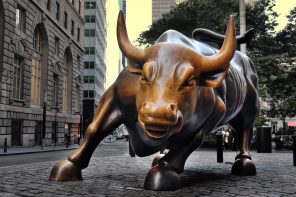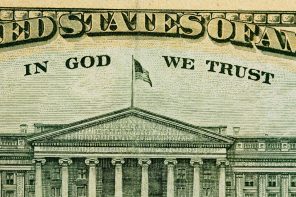One of the most perplexing things about the constantly changing economic situation, and increasingly pathetic attempts by economic experts to speak confidently about it (since they know that everything in our system allegedly hangs or falls on consumer confidence), is the recurrent theme of “the end of capitalism as we know it.” Not since the Depression has the rhetoric of crisis loomed larger, nor with greater urgency, nor with greater merit.
Crisis there surely is, but not, I do not think, in the places we are told to look for it.
Many have viewed the latest proposed federal “bailout”—let’s be honest about this, and call it what it is: the federally sponsored purchase of crappy investments in order to keep the real shit from hitting the fan—as the end of capitalism as we know it, and from the perspective of the political right, the socialization of what should be private debt and private failures. On the left, the description of what is happening is more complex, and also more uncertain. The left knows that we’ve never had a purely free market, but rather a government that picks and chooses where it intervenes. Farms and agro-business, yes; automobiles, sometimes; steel, no way.
Thus the political left needs to explain more clearly than it has done, how the current proposals are not legislative pandering to its dominant constituency—“Wall Street interests”—such that we instantly share their sense of crisis in a way that we have never shared the equally grave sense of crisis among American steelworkers, or automobile makers. If some conservative Republicans call this “the end of capitalism,” then what do left-leaning Democrats call it? Enabling global capital to live to fight another day?
All the campaign rhetoric about the need for better regulation, and the need to avoid wasting taxpayers dollars to assist millionaires in their unexpected early retirement, makes a point. But such rhetoric seems to me to miss the central problem which looms over the current crisis. One of them, at any rate.
The problem as I see it is a terribly skewed sense of time. For capitalism is a system that is utterly and entirely future-oriented. It actually hinges on our ability to take the long view. We loan money to be repaid in installments over thirty years to people who envision working steadily throughout those thirty years and writing checks each month. The whole market orientation of enabling borrowing for the sake of investment and innovation and creating a different and better tomorrow hinges on that last term: tomorrow. Take that away, and the system really does collapse.
When rapacious quasi-capitalists start acting like there is no tomorrow, then that’s when it really hits the fan. That shift in temporal orientation actually destroys the system. And what we have witnessed in the last half-generation since Ronald Reagan first sold the rhetoric of Republican de-regulation and trust in free markets is just that: the death of tomorrow-thinking, under the pressure of the desire for instantaneous and sophomoric gratification.
The boys at Enron acted as if there were no tomorrow, quite literally up to the day tomorrow came crashing over their heads. They contented themselves with figuring out how to get theirs and get out before the empty coffers and fictional wealth were discovered to be fictional. That awful drama has been replayed many times since then, and rapacious lending practices are merely its latest instantiation. What do I care if the young couple to whom I’ve just loaned money in terms I know will force a foreclosure in a few short years? I’ve made my commission right now, today. And what do we care if we “bundle” these slipshod loans together, call them a “portfolio,” and then sell them long? When tomorrow comes, we already have ours.
The current residents of the United States have the singular distinction of having a Texas oilman at the helm who, amazingly, lost $20 million trying to get an oil business running in Texas. When tomorrow crashed on his head, he had parental friends who paid for it. I wish it were not as simple as that, but it seems that this is precisely the extent of the man’s imagination. With a Texas oilman at the helm, we have watched oil prices skyrocket at an unprecedented pace. He now proposes to finagle a mortgage-and-insurance bailout in much the same tomorrow-less terms with which he has attempted to sell, and now to fund, a war.
So we will borrow money, get this, to pay for bad borrowing. And we will pass that new debt on to, well, the taxpayers in one sense, but let’s be clear: we are passing this debt on to tomorrow. To generations as yet unborn. And there is a whole impressive vocabulary we’ve concocted to make it sound like we know what we are doing. We are “extending our debt ceiling”… Translation? We are going, in one fell swoop, to take on more debt without paying for a dollop of it than we have thus far doled out to fund the entire fiasco in Iraq.
After all, when the numbers get this large, they become unreal. So what does it matter if we pass it off to tomorrow?
More on that in my next column.




